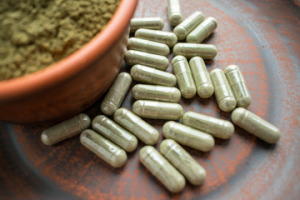
FDA to drop two-study requirement for new drug approvals, aiming to speed access
The FDA officials predicted the shift would lead to “a surge in drug development.”

The FDA officials predicted the shift would lead to “a surge in drug development.”

Moderna President Stephen Hoge said that the company had previously engaged with the FDA on the trial design and that the agency had indicated it would be acceptable.

Health advocates have long called for the removal of artificial dyes from foods, citing inconclusive studies that found they could cause neurobehavioral problems, including hyperactivity and attention issues in some children.

Under the program, drugmakers are promised expedited reviews of one to two months for new medicines that support “national interests.”

Ovarian cancer is the fifth-leading cause of cancer death among women in the United States.

U.S. Food and Drug Administration officials say a comprehensive review “found no increased risk” related to suicide among users of the GLP-1 drugs, including Eli Lilly and Co.’s Zepbound, used to treat obesity.

Novo Nordisk’s Wegovy pills are expected to be available within weeks, while Indianapolis-based Eli Lilly and Co. waits for approval for its daily GLP-1 pill, orforglipron.

Dr. Helen Bernie said on a Dec. 10 panel hosted by the U.S. Food and Drug Administration that serum testosterone “is one of the most powerful yet underutilized biomarkers for men’s health.”

The U.S. Food and Drug Administration said four companies continued to sell the infant formula for days or weeks, despite a Nov. 11 recall of all products in the outbreak that has sickened more than 50 babies in 19 states.

The company recalled thousands of cases of heat-and-eat linguine, fettucine, penne and other pastas sold at grocery stores nationwide.

President Donald Trump signed a memo Tuesday that directs the FDA and other agencies to step up enforcement against ubiquitous prescription drug ads on TV, websites and social media.

The revamped vaccines target a newer version of the continuously evolving virus and are set to begin shipping soon.

U.S. health officials are warning Americans about the risks of an opioid-like ingredient increasingly added to energy drinks, gummies and supplements sold at gas stations and convenience stores, recommending a nationwide ban.

Dr. George Tidmarsh, a cancer and pediatric specialist, will direct the agency’s Center for Drug Evaluation and Research, which regulates the safety and effectiveness of all U.S. drugs.

The idea could help the administration achieve one of President Donald Trump’s main health-care goals: ensuring foreign countries aren’t getting a better deal on drugs.

Investors have long asked the FDA to share its reasons for rejecting drugs, arguing that companies can use the agency’s silence on the matter to mislead the market.

Nestle joins Kraft Heinz and General Mills as major food companies to pledge they would remove artificial dyes from their U.S. products.

Food and Drug Administration Commissioner Marty Makary said the agency will aim to review select drugs in one to two months.

FDA leaders estimate more than 100 million Americans would still be eligible for the shots under the new framework.

It would be a sweeping change for U.S. food producers, who would likely replace the dyes with natural substitutes.